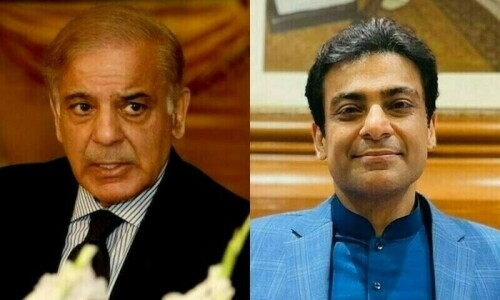LAST Tuesday marked an unenviable end to six years of near-absolute power. Gen Qamar Javed Bajwa would not have wanted to go as he did, spurned by friend and foe alike. Even the general public — usually so enamoured of men in uniform — seemed unforgiving as he hung up his boots, with many taking to social media to express their criticism.
It is unfortunate that it had to be so, and the retired general will no doubt spend many a moment of solitude pondering where it all went wrong. Was it ambition that became his undoing, or naiveté? That question will rankle him as he comes to terms with the legacy he leaves behind.
His thoughts will eventually turn to how he may have been remembered had he retired on time. It would seem, in retrospect, that doffing the uniform three years ago could have at least saved him from the many controversies that arose during his last months in office.
Gen Bajwa is not the only army chief who squandered his prestige by sticking around for longer than he ought to have. Others before him who also overstayed their tenure suffered more or less similar fates, leaving it to their institution to pay the price for their hubris.
This publication has long argued against service extensions unless these have to be made purely for strategic purposes during an ongoing war. The practice of having individuals carry on well beyond their time is up — and, in the process, denying successive batches of capable officers the chance to lead and mould their institution in new ways — weakens the armed forces by eroding their prestige. It has tied the military and the executive together in a co-dependent relationship, in which one side invariably ends up using its leverage on the other for quid pro quo arrangements that may extend its grip on power.
Indeed, if the army is serious about its recent commitment to detaching itself from domestic politics, it should, as a starting step, encourage a legislative initiative to do away with this practice completely. The civilian leadership, too, must take the opportunity to bury this harmful precedent rather than find new ways to enforce it, such as the amendments to the Army Act that were recently being considered.
The army chief should come in for a term, lead it capably, chart a course for the future in consultation with his prospective successors, and then depart on time and gracefully — without any of the needless speculation and political machinations seen this year. There is no shortage of capable people in the forces that just one should be considered indispensable.
The outgoing year has shown us that Pakistan has changed — perhaps irreversibly so — and that it cannot be business as usual in matters such as these. It is time our system evolved as well.
Published in Dawn, December 5th, 2022












































